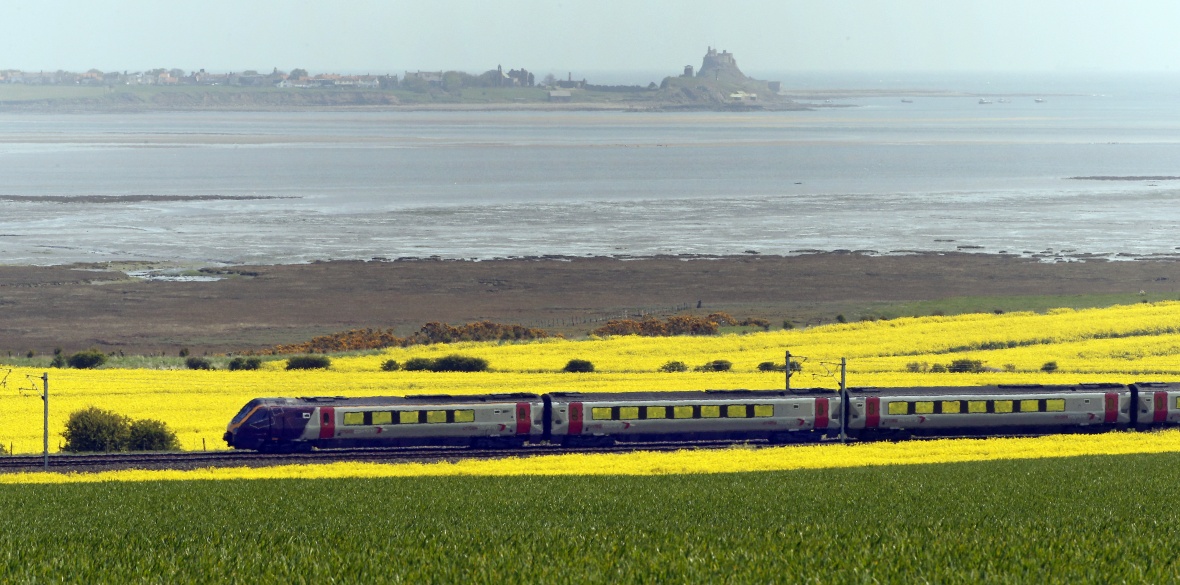This is the last article you can read this month
You can read more article this month
You can read more articles this month
Sorry your limit is up for this month
Reset on:
Please help support the Morning Star by subscribing here
IT’S been a busy 12 months for our trade union. Although, if we could speak to our predecessors, up there in the top link in the sky, they would probably say that every year has been a busy year since our union was formed.
“Aslef — established 1880.” That’s what it says on our badge. And it was here, in Leeds. We are proud of our history and proud of what those who came before us have achieved for rail workers in England, Scotland and Wales, where we organise – and the aims, aspirations and ideals of Aslef are, essentially, the same today as they were back in 1880.
They are enshrined in our rule book: “Aslef exists to secure the best terms and conditions for train drivers; to negotiate on behalf of our members with the train and freight operating companies; to promote a pride in the job we do; to champion equality in our industry; to provide education services for our members; and to work for a fairer, more just, and more equitable society. A socialist society.”
That is who we are and that is what we do. It’s what we’ve been doing, successfully, for 139 years since we first lit the firebox and the enduring lighted flame of our union. Aslef has a long and distinguished history and, we believe, a bright future.
Our industry, though, is in a state of flux after the timetable fiasco, with several train operating companies said to be ready to hand back the keys, or renegotiate their contracts, and freight operating companies struggling to deal with a management culture of short-term thinking and a legacy of poor decisions.
Brexit has cast a long shadow, sucking much of the oxygen out of political debate. The funding model is collapsing which, coupled with structural flaws in the franchise system, and a lack of strategic leadership by Chris Grayling, has led to serious problems in an industry which requires long-term strategic planning.
Grayling approved another big increase in fares for hard-pressed passengers, pushing people to pay more for a poorer service. That’s not a great offer, is it? For passengers — or for voters at the next election.
A review of the rail industry was ordered by the government — the Treasury, in particular, has become disenchanted with Grayling — following trenchant criticism from rail unions, the Labour Party, think tanks, passengers and commuter groups.
The Williams review follows damning criticism by the transport select committee which condemned Grayling as “naive” and said the Department for Transport failed to conduct “appropriate due diligence” on VTEC’s bid to run the East Coast main line.
The National Audit Office (NAO) investigated the DfT’s controversial decision to cancel three major rail projects — the electrification of the Great Western main line in South Wales, the Midland main line, and the Lakes line between Windermere and Oxenholme — and suggested that the Transport Secretary had not told the truth about the reasons for cancelling the work.
This country needs a modern railway, and proper infrastructure, fit for the 21st century.
But it is clear from the NAO investigation that Grayling lied. The government didn’t want to find the money and made up a story about “sudden improvements” using “state of the art bi-mode trains.” It’s a fantasy, of course, and Grayling was rumbled.
When Grayling announced he had pulled the plug on VTEC it was the third time in 10 years that a private company has messed up the East Coast main line.
In contrast, when it was run in the public sector, East Coast returned £1 billion to the Treasury. This shows what we have said all along — that Britain’s railways should be run, successfully, as a public service for the many, and not for the private profit of a few.
On a happier note, official figures show that the job with the smallest gap in wages between men and women in Britain is driving trains.
Statistics compiled by the Government Equalities Office reveal that while the overall gender pay in Britain is 18.4 per cent, for train drivers it is just 0.7 per cent.
We are delighted because Aslef has been at the forefront of promoting diversity in our industry, encouraging companies to ensure that drivers are more representative of the communities they serve.
We have also been working hard to ensure that the pensions of our members are properly protected. And we will continue to defend our members’ jobs and livelihoods, as we always have.
Aslef is a small craft union. We have 20,334 active members and a further 2,440 in our Retired Members’ Section.
Those numbers are tiny compared with Unison, Unite and the GMB.
But our density is extraordinary; no-one has to belong to a trade union in this country — there is no closed shop any more — but 96 per cent of the train drivers in Britain choose to belong to Aslef.
That figure, together with our members’ sense of solidarity, and a traditional refusal to cross an Aslef picket line, is what gives this union its industrial strength.
The train and freight operating companies know that members of this union will stand together and not be bullied. That’s why we have been fighting — and winning — battles since we were formed in Leeds in 1880.
We might be a small trade union, but we punch well above our weight, in the Labour Party and in the labour movement.
Mick Whelan has spent 35 years on the railway as an active trade unionist. General secretary of Aslef since 2011, he was elected to the national executive committee of the Labour Party in 2017.











